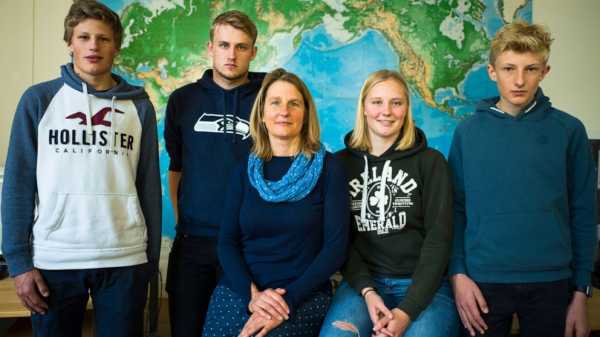
Judges in Germany on Thursday threw out a lawsuit by three farming families who had taken Chancellor Angela Merkel’s government to court and argued that it wasn’t doing enough to tackle climate change.
The suit was the first attempt in Germany to hold authorities legally accountable for pledges they have made to reduce greenhouse gas emissions. Similar cases elsewhere have met with mixed success.
The families, who were backed by environmental group Greenpeace, claimed their farms are already suffering from the effects of man-made global warming, and that Germany — one of the world’s biggest historical emitters of greenhouse gases — was partly responsible.
But the Berlin administrative court ruled after a one-day hearing that there was no legal basis to pursue the plaintiffs’ claims.
Specifically, the five judges concluded that a 2014 decision by the Cabinet to cut Germany’s greenhouse gas emissions by 40% by 2020 compared with 1990s levels only constituted a declaration of political intent, not a legally binding commitment.
The court also noted that the government had made a subsequent decision this October that pushed back the 2020 emissions cuts goal by three years, and said this delay alone wasn’t enough for the plaintiffs to claim that their human rights had been breached.
Still, the plaintiffs’ lawyer, Roda Verheyen, said the judges had set an important precedent by acknowledging a link between fundamental rights, climate change and government actions.
“This needs to be elaborated on,” Verheyen told reporters, adding that her clients hadn’t decided yet whether to appeal the ruling, an option the judges allowed, citing the significance of the case.
Germany’s Environment Ministry has acknowledged that it will miss its 2020 emissions cuts goal, but says it is now concentrating on a more ambitious target of cutting emissions by 55% by 2030.
Speaking ahead of the hearing, plaintiff Silke Backsen said recent hot summers and stronger storm seasons are putting a strain on the family’s organic cattle farm on the North Sea island of Pellworm. Rising sea levels could make the low-lying island uninhabitable unless global warming is slowed significantly.
After the ruling her husband, Joerg Backsen, told reporters that it was unclear how the family’s farm would cope in the coming years. He said old certainties about the weather simply don’t hold true anymore.
Martin Kaiser, the chief executive of Greenpeace Germany, voiced disappointment over the court ruling.
“There won’t be a single ton of carbon dioxide less in the atmosphere (as a result),” he said. “The German government hasn’t been ordered to actively take any immediate measures.”
He indicated the environmental group is prepared to take the legal fight further.
“The chancellor’s refusal to take concrete measures and set parameters for industry can no longer be tolerated,” Kaiser said. “That’s why we need to pursue legal avenues, because this government isn’t prepared to take action now.”
———
Follow AP’s full coverage of climate change issues at https://www.apnews.com/Climate
Sourse: abcnews.go.com






